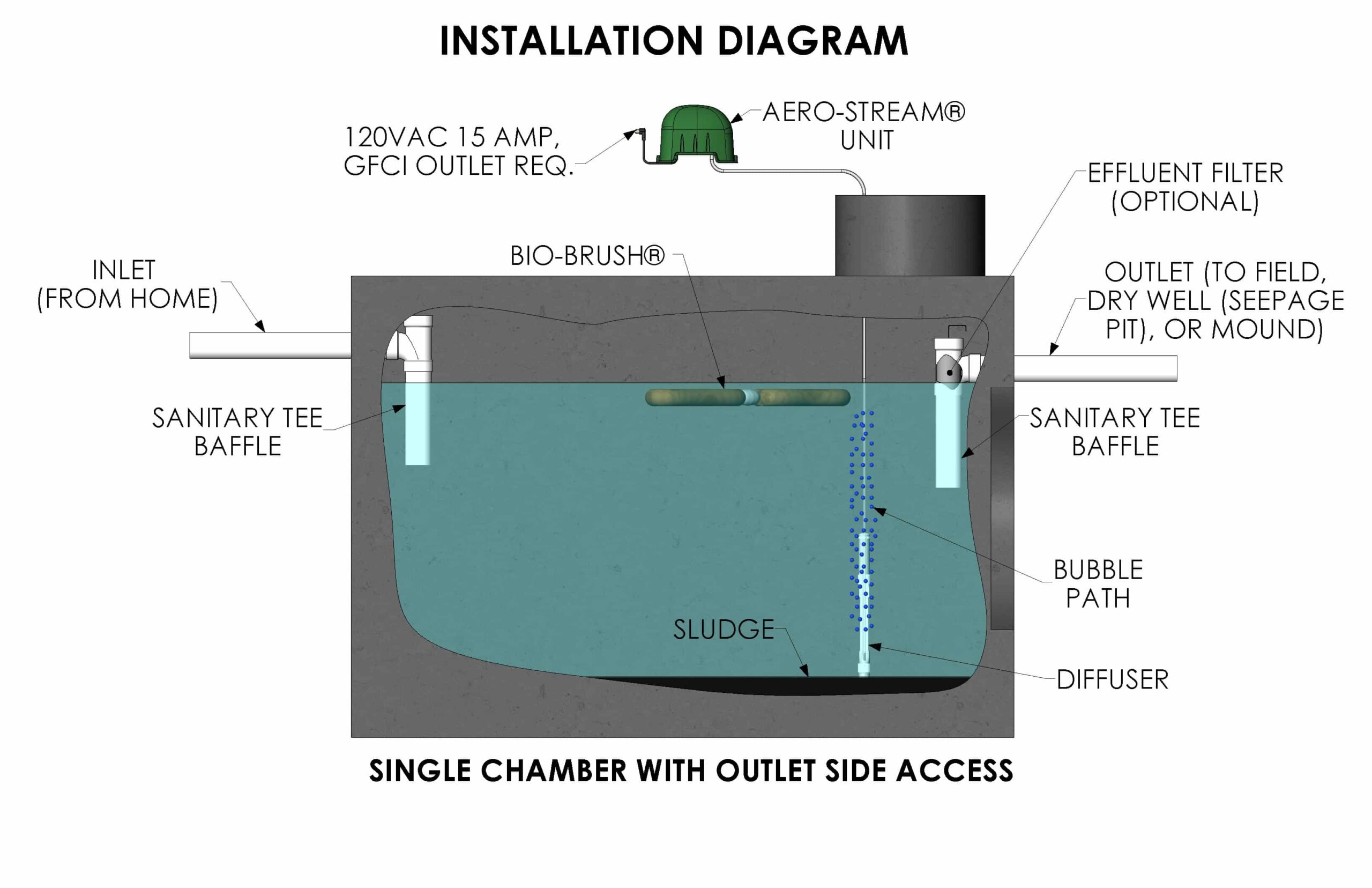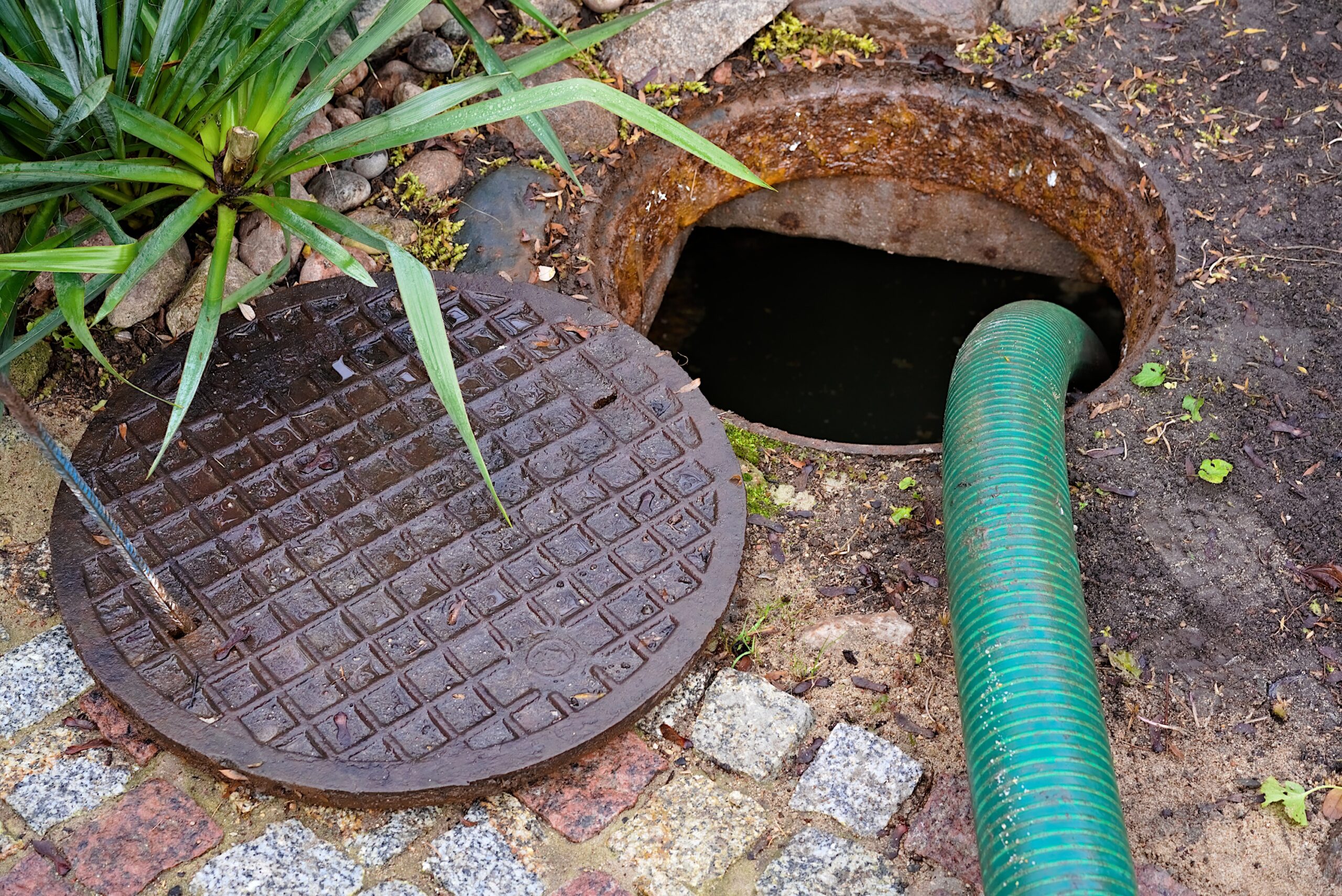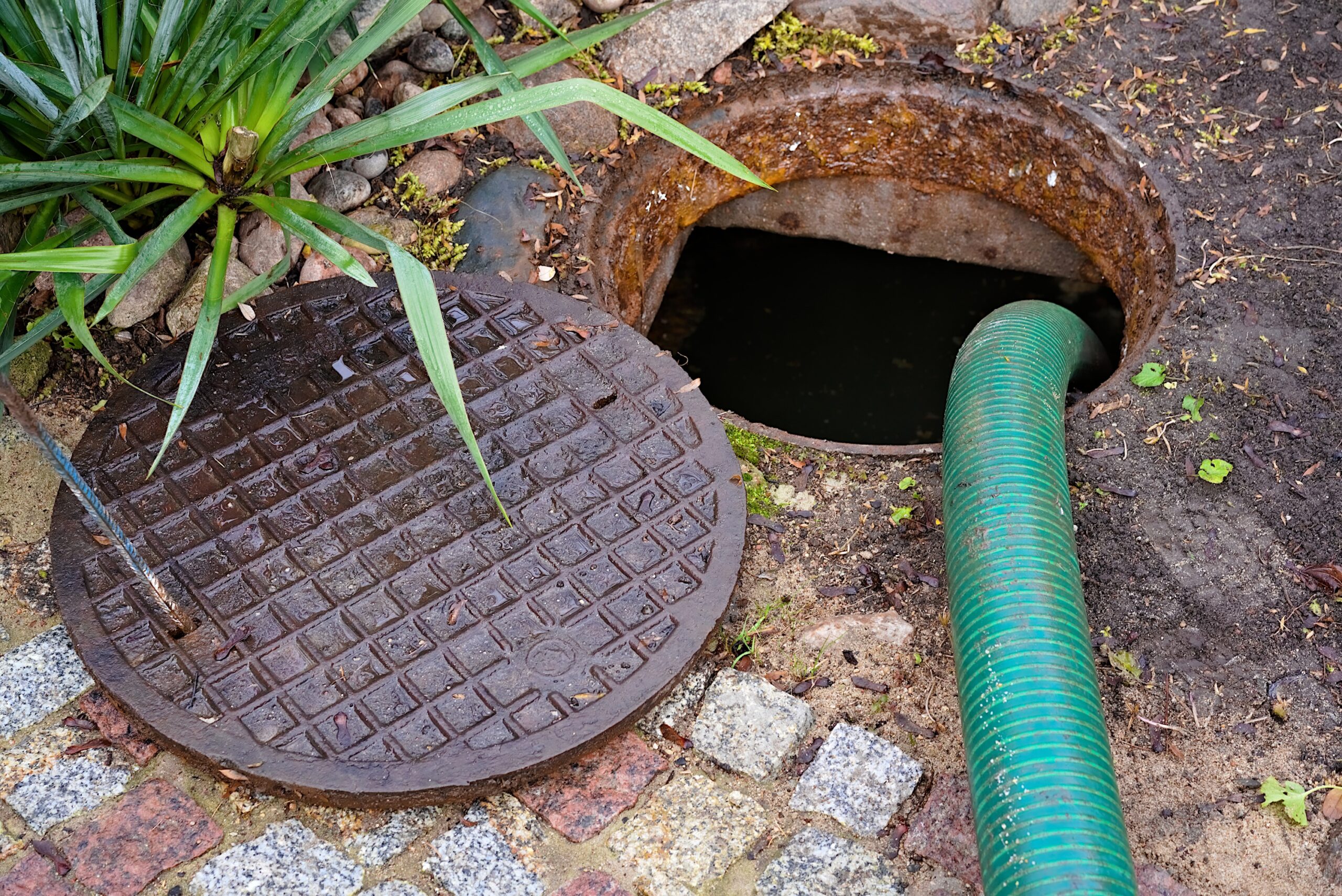Garbage disposals can put an added strain on home septic tank systems by adding significantly to the organic material that these small-scale waste treatment plants must process. Most plumbing and septic system experts recommend against installing a garbage disposal in conjunction with a tank and leach field system because the added organic material in the septic system can necessitate more frequent pumpings and may reduce the functional life of the septic tank. If a garbage disposal unit is already present or is a must-have for homeowners, precautions should be taken to prevent overflows and septic system failures due to the increased organic materials introduced into the tank by these household devices.
The Problem with Garbage Disposals
The average septic tank processes just under 70,000 gallons of water every year. This is in addition to the solid wastes and the organic materials that pass into the system through toilets, sinks and other drains that lead from the home. Increasing the amount of particulate matter in the septic tank can result in clogs, reduced efficiency and added biomat growth in the lower regions of the tank. The amount of organic material generated by a garbage disposal unit can quickly overwhelm the anaerobic bacteria that traditionally populate older septic systems.
Boosting Efficiency for Septic Tank Systems
Increased pumping and maintenance for septic systems can usually allow the proper functioning of these waste treatment plants even with the added load of a garbage disposal. Older septic tanks and leach fields, however, may require a little extra help to manage added workloads due to the increased organic waste entering the system. Septic aeration systems can provide real help in increasing the efficiency of the decomposition and wastewater remediation process.
Advantages of Aeration Systems
Home septic systems that have not been upgraded with a septic aerator are filled with anaerobic bacteria colonies. These microorganisms thrive in the airless environment of the average septic tank and consume the organic waste that passes through the system. However, anaerobic bacteria present a number of drawbacks for homeowners:
- Anaerobic bacterial decomposition processes are relatively inefficient and slow
- Exposure to anaerobic bacteria can be hazardous to health
- Anaerobic processes produce a number of foul-smelling and dangerous chemicals
By contrast, aerobic bacteria are highly efficient in breaking down organic waste and reducing the level of biomat at the bottom of the septic tank. Aerobic decomposition processes do not produce foul odors or toxic chemicals that could harm people or pets.
Aeration systems like those available from Aero-Stream can provide increased decomposition speed and power to manage organic waste from garbage disposals more effectively. Septic aerators also manage everyday wastewater remediation more efficiently. This can prevent a number of common septic tank problems and can extend the life of the tank and leach field, allowing homeowners to enjoy worry-free performance from these household waste management systems.











